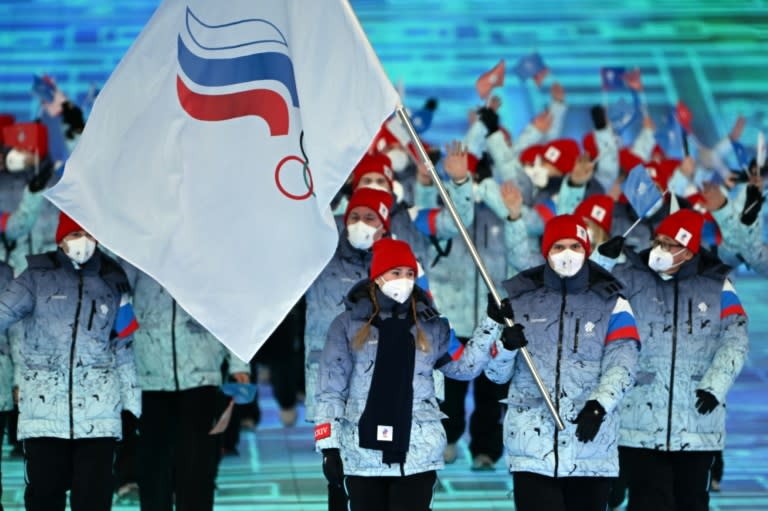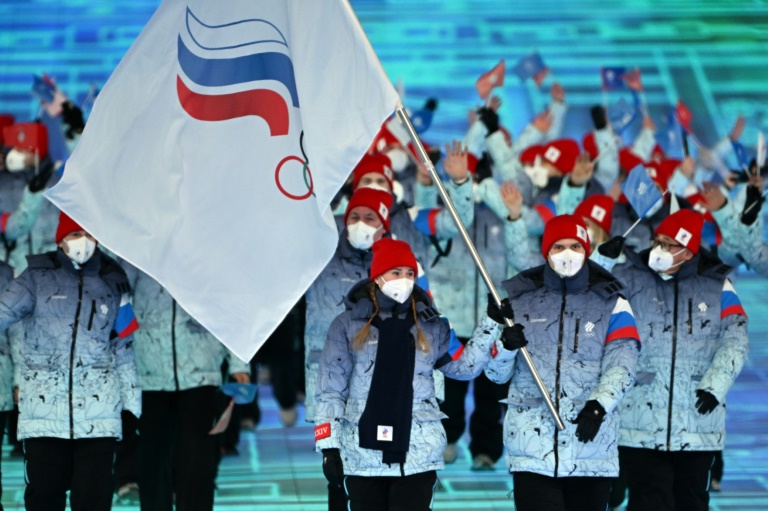
Despite the United Nations' resolution last year to honor the Olympic Truce, the Paris Games will still be held in the shadow of international conflict.
The UN resolution was titled “Building a peaceful and better world through sport and the Olympic ideals.''
AFP said fighting in the Middle East and tensions between Ukraine and countries including Afghanistan, whose policies violate the Olympic Charter, could cause problems for the Olympics, which run from July 26 to August 11. We are considering that there is.
Russian riddle
Russia's persistent doping has led to the suspension of the Paralympic team from the 2016 Rio Games, and the failure of Russian athletes to carry the national flag at the 2021 Tokyo Games, the 2018 PyeongChang Winter Games, and the 2022 Beijing Winter Games. This led to a ban from competing.
The problem this time is not drugs, but war. On February 24, 2022, four days after the Beijing Olympics ended, Russia invaded Ukraine while the armistice agreement was still in place.
Following international outcry, an immediate ban on Russia and its ally Belarus from most international sports was decided. Last October, the International Olympic Committee (IOC) suspended the Russian Olympic Committee for annexing sports organizations from four regions in partially occupied Ukraine.
Meanwhile, the IOC is keen to protect individual Russian athletes under the Olympic Charter's “non-discrimination” clause.
The commission will begin coordinating a return to the competition in March 2023, competing under a neutral flag, no parade at the opening ceremony, and certifying that it is “not actively supporting the war in Ukraine.” He approved his participation in the December convention on the condition that he do so. ” and has no ties to the military or security agencies.
Ukraine still wants to ban Russians from entering the country, but Kiev abandoned its boycott threat last summer.
In March, the IOC estimated that 36 Russians and 22 Belarusians would qualify for Paris.
Therefore, the recurring question remains how representatives of belligerent countries will coexist at the Games.
Gaza: remains neutral
The IOC is seeking to avoid conflict in Gaza, citing the implementation of the two-state solution, a legacy of the 1993 Oslo peace process. The Israeli and Palestinian National Olympic Committees (NOCs) have co-existed within the IOC since 1995.
Although Israel has not violated the Olympic Truce and the NOC has not annexed any Palestinian sports organization, the headquarters of a major Palestinian sports organization was destroyed in retaliation for the bloody attack by Hamas on October 7. , which caused the deaths of major sports officials, including: Coach of the football team.
Neither Palestinians nor Arab countries have threatened to boycott the games if Israelis participate.
The IOC will therefore adopt two approaches. The country relies on its “locus of universality” to guarantee the presence of Palestinians who may struggle to make it past traditional qualifications. The same emphasis has been placed on security at every Games since 1972, when 11 Israelis were killed in an attack on the Olympic delegation by members of a Palestinian extremist group in Munich.
Iran and Israel: Growing uncertainty
It remains difficult to assess the impact of this escalating conflict on the Games. Countries with conflict, such as Iran and Iraq, also participate in the same competition. The IOC's principle of separating sport from politics does not mean that wartime itself is a reason for exclusion. Again, there are concerns about how athletes from both countries will live together in the Olympic Village and their behavior during competition. Iran punished athletes who shook hands with Israelis and asked them not to compete against Israeli opponents.
Afghanistan: low-key pressure
With the Taliban returning to power in 2021, the IOC faced a dilemma. We want to support the athletes and support staff who remain in Afghanistan, but restrictions on women's participation in sports violate Olympic principles.
The IOC has called on Afghan authorities to guarantee “safe access to sport for women and girls.” The IOC also provides financial aid to athletes, leaving itself with the option of cracking down on national NOCs, for example by refusing to certify officials in Paris.
In mid-March, the Olympic body pledged to “do everything possible” to ensure that Afghanistan's national team “respects gender equality” and competes at the 2024 Olympics. The IOC “doesn't think it's a problem to isolate Afghanistan's sporting community at this point in time,” which is the right approach, said IOC Olympic Solidarity Director James MacLeod.
cfe/pb/lp/gj

